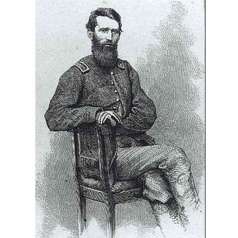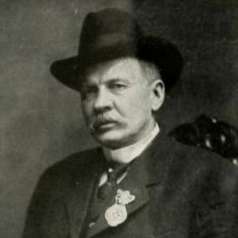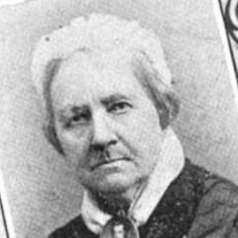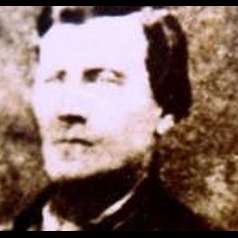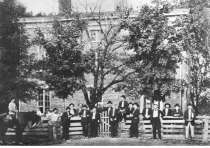
Albert Roberts was born into the Nashville newspaper industry in 1835. His father, John, was born in England and had learned the printing profession in London before coming to Tennessee. Roberts followed his father’s footsteps, receiving the best education and apprenticing in printing by the age of 16. He was a European correspondent for his father’s paper, the Nashville Banner, before returning home. Humor and sarcasm characterize Roberts’ writing as he describes for Middle Tennessee readers life in a military training camp. With war looming in 1861, Roberts joined Company A of the 20th Tennessee Infantry Regiment and trained at Camp Trousdale in Sumner County. Under the pen name “John Happy,” Roberts satirized camp life—training, visitors, alcohol, and water (drinking water had to be brought in from 40 miles away) and weapons shortages—for readers who had brothers, fathers, husbands, and sons training in the Confederate army. On the camp’s first location and water supply problems, Roberts was blunt: “…the discreet government ‘pet’ who selected a dampflat, covered with a dense undergrowth and forest trees, as a camping-ground for 5000 men, should be damned with…immortality. There is nothing under Heaven to recommend Camp Trousdale but its name….” Roberts told readers not to fear for their safety because “the troops are all well armed—each ...supplied with a couple of arms apiece, which they use with commendable proficiency—by swinging them to and fro on the march….” At Camp Trousdale, Roberts served as 2nd Lieutenant, overseeing training of his men. Roberts was in command of 20th Tennessee at the Battle of Fishing Creek, Kentucky, and maintained command when he was promoted to Captain just before Shiloh in April 1862. In May, Roberts resigned from the 20th Tennessee and joined Gen. John Hunt Morgan’s cavalry for a few months before leaving the service. Roberts covered war news in the Chattanooga Rebel, the Atlanta-based Southern Confederacy, and the Montgomery Mail until the papers dissolved under Federal occupation. After the war, Roberts returned to the printing business in Nashville and eventually served President Grover Cleveland as a U. S. Consul in Hamilton, Ontario.
Tools
Key Facts
- Son of Nashville banner publisher, worked as foreign correspondent
- Satirized camp life at Camp Trousdale, fought at Fishing Creek and Shiloh
- After serving under John Hunt Morgan, left military, became war correspondent




